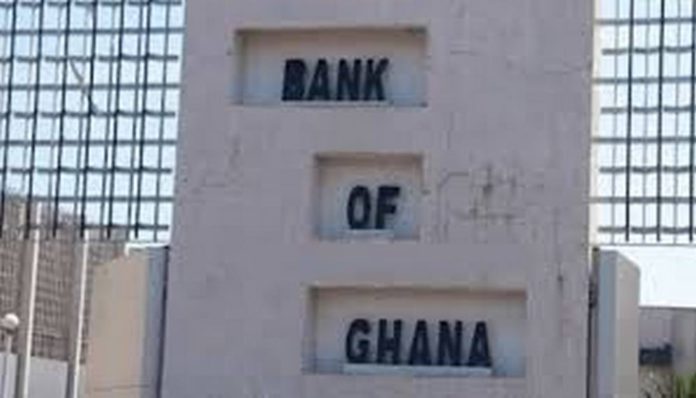The Bank of Ghana (BoG) has indicated that it would not hesitate to sanction banks that fail to comply with rules governing the recent liquidity capital released to improve funding for some critical sectors of the economy.
The Central Bank said it will monitor financial dealings of banks and Special Deposit-Taking Institutions (SDIs) on a weekly basis to ensure full compliance with the new directives.
After a recent Monetary Policy Committee Meeting, the Bank of Ghana released series of measures aimed at dealing with the expected shocks that would hit the economy and improve liquidity in the wake of the coronavirus pandemic.
Some of these measures include:
i. Reduction of the Primary Reserve Requirement from 10 per cent to 8 per cent to provide more liquidity to banks and SDIs to support critical sectors of the economy;
ii. The reduction of the Capital Conservation Buffer (CCB) for banks from 3 per cent to 1.5 per cent to provide the needed financial support to the economy;
STORIES:
Coronavirus: VIP lounge at Kotoka Int’l Airport shuts down
Herbalists, Traditional Priests scout for coronavirus cure [watch]
Imposition of Restrictions Act passed despite NDC criticism and fears
iii. The reduction of provisions for loans in the Other Loans Especially Mentioned (OLEM) category from 10 per cent to 5 per cent for all banks and SDIs as a policy response to loans that may experience difficulty in repayments due to slowdown in economic activity; and
iv. Loan repayments that are past due for Microfinance Institutions for up to 30 days shall be considered as “Current” as is the case for all other SDIs.
Other measures
According to the Bank of Ghana, it has put in place these mechanisms because it wants to provide more liquidity and financial support to critical sectors of the economy to mitigate the adverse impact of COVID-19 on the Ghanaian economy.
The Central Bank also directed banks and SDIs to “refrain from declaring and paying dividends or making other distributions to shareholders for the 2019 financial year unless the Bank of Ghana is satisfied.”
It added that “the institution meets the regular prudential requirements and is not relying on the additional liquidity released by the policy measures enumerated above to pay shareholders.”
The Centr Bank directed that all banks and SDIs will seek its prior approval in writing before the declaration and payment of dividends.
It also warned that the Banks and SDI “desist from utilising the released liquidity based on the above policy interventions, to purchase Government of Ghana and Bank of Ghana Securities.”
Monitoring
The Central Bank said it will monitor to ensure that these directives are complied with.
“The Bank of Ghana shall monitor banks and SDIs’ financial dealings on a weekly basis, to ensure full compliance with the above directives,” the central bank in a statement.
It said failure to comply with this notice shall attract sanctions in accordance with the relevant provisions of the Banks and Specialised Deposit-Taking Institutions Act, 2016 (Act 930).

